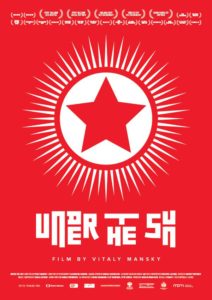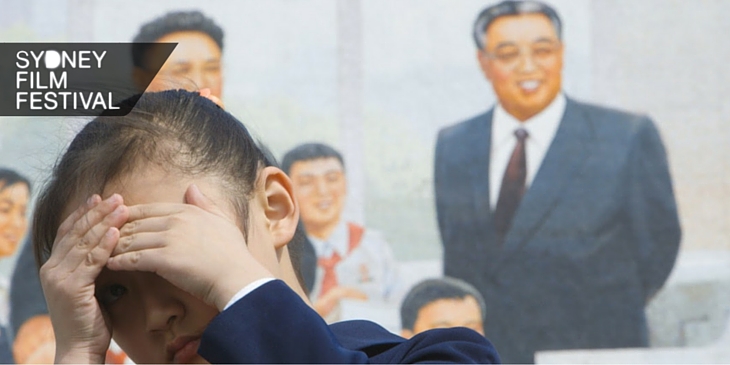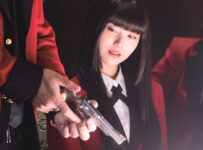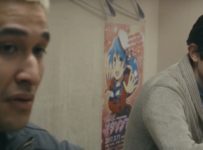 One of the most creative solutions to filming a documentary in a closed system, Vitaly Mansky’s essential film exposes how real a staged scenario can be.
One of the most creative solutions to filming a documentary in a closed system, Vitaly Mansky’s essential film exposes how real a staged scenario can be.
“My father says that Korea is the most beautiful country… Korea is the land of the rising sun,” expresses 8-year old North Korean schoolgirl Zin-mi, allegedly a representative of a “perfectly ordinary family in the best country in the world.” Russian documentarian Vitaly Mansky set out to follow this family as Zin-mi prepared for the Supreme Leader’s Birthday and her entry into the Children’s Union. As we learn early on, Manksy was given scripts by the government to follow, accompanied at all times and told where to shoot, suggesting that very little ‘reality’ could come of this documentary. Yet Mansky cleverly leaves the camera rolling between setups, capturing the literal men behind the curtain who “suggest” what the various participants will say next.
Cinematographer Alexandra Ivanova, who collaborated with Mansky on Pipeline (2013), shoots beautifully pristine shots of the perfectly ordered empire. The streets and areas are so clean and free of unauthorised debris that they look fake, which is in fact the real truth. Everything we see is a construct, and it is so obviously the case that it reveals how tightly controlled North Korean reality is. Children are told to repeat stories of how the Generalissimo hurdled boulders at enemies to emphasise how treacherous the Japanese are. “You must hate the Japanese, the Americans, their puppets, and all of our other enemies,” is drilled into the children. It would seem like parody if this was not the the face that the North Korean officials chose to put in front of the camera. Mansky’s observations about what they don’t see, such as children entering schools or workers entering factories (on the assumption they sleep there) are just as important. Watching parade after parade of carefully choreographed factory workers, soldiers and dancers, if it begins to feel like a colourful and tightly structured monotony, it’s because it is. As Karlis Auzans’ brooding music intensifies over the charade, a tragic moment comes in the final minutes. Zin-mi is asked what life is like now she has entered the Children’s Union, and she can only burst into tears. Unable to turn to a happy thought for comfort, she finds solace in the only evidence we have seen for the duration of UNDER THE SUN: a recitation of a poem about their beloved Leader.
2015 | Russia, Germany, Czech Republic, Latvia, North Korea | DIR: Vitaly Mansky | DISTRIBUTOR: Sydney Film Festival (AUS) | RUNNING TIME: 106 minutes | RATING: ★★★★★ (10/10)




